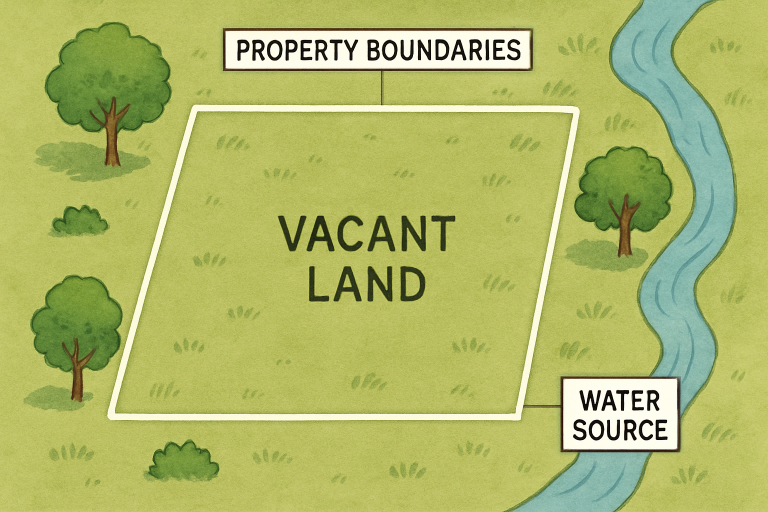Key Takeaways
- Selling vacant land involves unique challenges and requires a targeted approach.
- Understanding zoning, pricing, and land-specific marketing strategies can speed up your sale.
- Expert advice, recent market trends, and practical preparation help maximize success.
- Working with the right professionals can make a significant difference in the final outcome.
The Distinctive Nature Of Selling Vacant Land
Selling vacant land presents unique opportunities but also unique challenges. Sellers must help buyers visualize the potential of the land, enabling them to envision the possibilities of building a dream home or launching a business. By seeking the support of experienced Portland ME real estate agent Ana Dierkhising early in the process, you can navigate market dynamics and reach motivated buyers. Successful vacant land sales depend on timing and approach, with a targeted strategy needed to identify the ideal buyer profile and align marketing efforts in a competitive landscape. Building a strong network and utilizing local market insights can further enhance sales potential. Additionally, staying flexible and open to adjusting marketing tactics ensures better engagement and quicker transactions.
What Buyers Look For In Vacant Land
Buyers evaluate vacant land based on practical aspects such as location, zoning regulations, and available utilities. Access to transportation, amenities, and thriving communities increases desirability. Zoning regulations ensure alignment with local codes, while available utilities and reliable access via public or private roads also influence a buyer’s decision. To speed up the sales process, sellers should provide transparent details about these factors, including clear documentation and concise descriptions, to help buyers envision the property’s fit into their needs or dreams.
Preparing Land For Sale: Start With The Essentials
First impressions matter, even for vacant land. Begin by surveying and clearly marking property boundaries—this establishes confidence and prevents disputes during the transaction. Remove any debris or hazards, and highlight natural assets such as old-growth trees, water access, or build-ready grades. Compelling, high-resolution photos and detailed maps help buyers visualize the space from a distance. According to Forbes Real Estate Council, these preparation steps are proven drivers of increased buyer interest and better leads.

Navigating Pricing For Vacant Land
Correct pricing is one of the trickiest parts of land sales and directly impacts market time. Land values are rarely uniform, even on the same road. Beyond comparable sales, factors such as zoning flexibility, access to future utilities, and potential re-parceling or development opportunities all play a role. Local research is crucial—review recent land sales, assess buyer demand, and consult local authorities about planned infrastructure or zoning changes. When in doubt, seek a professional appraisal to support your pricing and bolster buyer confidence.
Marketing Strategies That Work
To stand out in the land market, it’s essential to use targeted outreach, partner with local developers, and showcase your property’s use possibilities. Utilize social media groups and local land auctions to reach potential buyers. This combination of marketing and presentation maximizes your property’s visibility and buyer pool. For sellers seeking national interest, consult guides like Realtor.com for updated marketing tactics in today’s digital-first landscape.
Understanding Legal And Zoning Matters
Being prepared with all relevant legal and zoning documentation is crucial to smooth negotiations and a fast close. Buyers often want proof that site access, easements, and zoning are in order before submitting an offer. Ensure you have up-to-date records on deed restrictions, environmental reports, and recent surveys. These documents not only reduce buyer hesitation but can also justify your asking price and shorten the transaction timeline.
Working With Real Estate Professionals
Sellers who work with agents trained in land transactions generally experience faster closings and better sale prices. Specialized agents understand how to highlight your land’s unique attributes, avoid common pitfalls, and connect with buyers specifically searching for land. They’re also versed in the latest market regulations, legal requirements, and negotiation tactics that are critical when dealing with land, rather than traditional homes.
Closing The Deal: What To Expect
The closing process for land can involve more variables than home sales, from title checks to utility easements. Once offers arrive, review not just price, but closing contingencies, intended use, and the buyer’s timeline. Expect negotiations around concerns such as property corners or future development rights. Closing smoothly is much easier when you provide all relevant information up front and remain open to reasonable requests, such as a brief due diligence period or documentation updates.
Final Thoughts
Navigating the vacant land market requires patience, research, and a proactive approach. With careful preparation, transparent communication, and expert marketing, you can stand out in any market and achieve a successful land sale. Understanding the unique needs of land buyers—and working closely with industry professionals—puts you in the best position to maximize the value and minimize the hassle of your next sale.